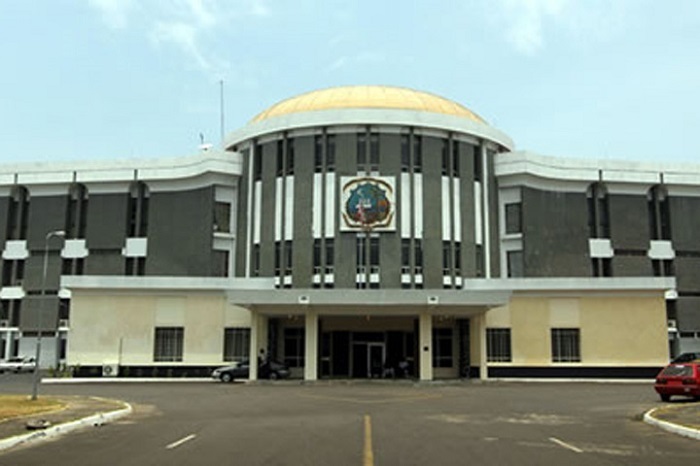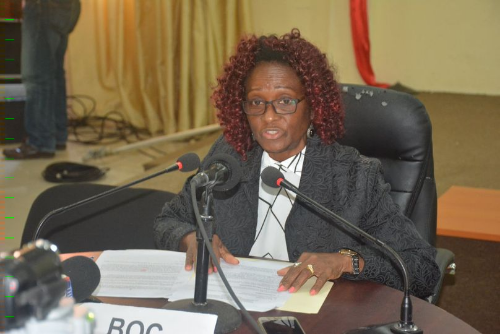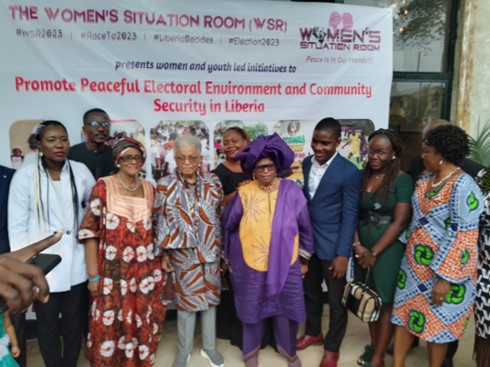A manufactured controversy surrounding the Yekepa-Buchanan railway has once again been activated with the intention to trigger unwarranted public debate, fueled by persistent and misleading accusations published by the Daily Observer. These reports allege that ArcelorMittal Liberia (AML) seeks to monopolize the railway which it painstakingly rehabilitated at the onset of its Liberia’s project in 2007. Despite AML’s transparent communication and clear evidence to the contrary, these allegations persist, raising serious concerns about the Observer’s adherence to journalistic integrity and its possible commitment to corporate interests over pursuing public trust.
At the center of this narrative lies High Power Exploration (HPX), led by Dr. J. Peter Pham, who has sought to influence public opinion through a network of media surrogates, led by the Observer. The goal is clear: to cast AML as a roadblock to progress while downplaying HPX’s obvious investment scams and lack of tangible investment in Liberia’s infrastructure. This campaign misrepresents the facts and undermines AML’s unparalleled contributions to Liberia’s post-war recovery and sustainable economic growth.
Since its entry into Liberia, AML has demonstrated a steadfast commitment to the country’s progress, investing over $800 million to restore the Yekepa-Buchanan railway and Buchanan port—critical infrastructures rendered inoperable by years of civil war. This railway now serves as a lifeline for economic activities in Liberia’s mineral-rich regions.
In contrast, HPX, which seeks to use the railway to transport ore from Guinea, has yet to obtain an operating license from the Guinean government, nor has it made any kind of investment in the infrastructure needed to confirm its intentions in Liberia. This disparity underscores a critical question: Who is truly committed to Liberia’s long-term development—AML, with its proven track record of investment and community impact, or HPX, with its reliance on aggressive media and political lobbying tactics to sidestep its obligations?
Contrary to the claims of monopolistic intent, AML has embraced a multiuser framework, as enshrined in Article Three of the amended Mineral Development Agreement (MDA), submitted to the Liberian Legislature in 2021. This framework ensures equitable access to the railway, subject to regulatory oversight by the Government of Liberia (GOL) to maintain safety, reliability, and efficiency. Far from obstructing competition, AML’s approach transforms the railway into a national asset open to responsible and regulated use.
AML’s commitment is evident in its on-going $1 billion Phase II expansion project, which includes replacing 600,000 timber sleepers with steel alternatives, upgrading nine sidings, and introducing cutting-edge locomotives and wagons to enhance capacity and safety. The project also involves constructing a new multipurpose quay at Buchanan Port and installing advanced material handling systems. These investments will create over 3,000 jobs, primarily benefiting Liberians while solidifying AML’s role as a cornerstone of the country’s economic stability.
HPX’s portrayal of AML as obstructive ignores fundamental realities. AML’s substantial financial contributions to Liberia, including taxes, royalties, and community development initiatives, demonstrate its alignment with Liberia’s national goals. In contrast, HPX’s demands lack substantive backing. It has not addressed how it intends to create the additional railway capacity required to handle increased tonnage responsibly—a prerequisite for multiuser agreements.
The mischaracterization of AML’s regulatory compliance as an attempt to undermine competitors like HPX and Solway Mining is disingenuous. Access disputes arise from the complexities of Liberia’s regulatory framework, not from AML’s operational policies. Moreover, AML’s insistence on safety and efficiency is not merely a corporate mandate but a national imperative.
Assertions that AML’s operations contradict U.S. strategic interests are similarly unfounded. AML’s investments have catalyzed economic growth, aligning with Liberia’s vision for equitable resource management. By restoring the Yekepa-Buchanan railway and maintaining a multiuser framework, AML ensures that Liberia’s resources are leveraged for the benefit of its people, driving sustainable development.
The future of Liberia’s railway lies in collaboration, not division. AML’s multi-user framework balances competing interests while prioritizing national progress. As a corporate citizen, AML remains committed to fostering shared prosperity, safeguarding infrastructure investments, and championing Liberia’s economic transformation.
Baseless accusations and misleading media campaigns do little to advance Liberia’s development. Instead, they divert attention from the critical task of building a cohesive and sustainable future. AML stands ready to work alongside all stakeholders, including HPX, to ensure that Liberia’s railway serves as a beacon of opportunity for generations to come.
Let the facts speak for themselves: AML is not a monopolist but a partner in Liberia’s journey toward lasting prosperity.







